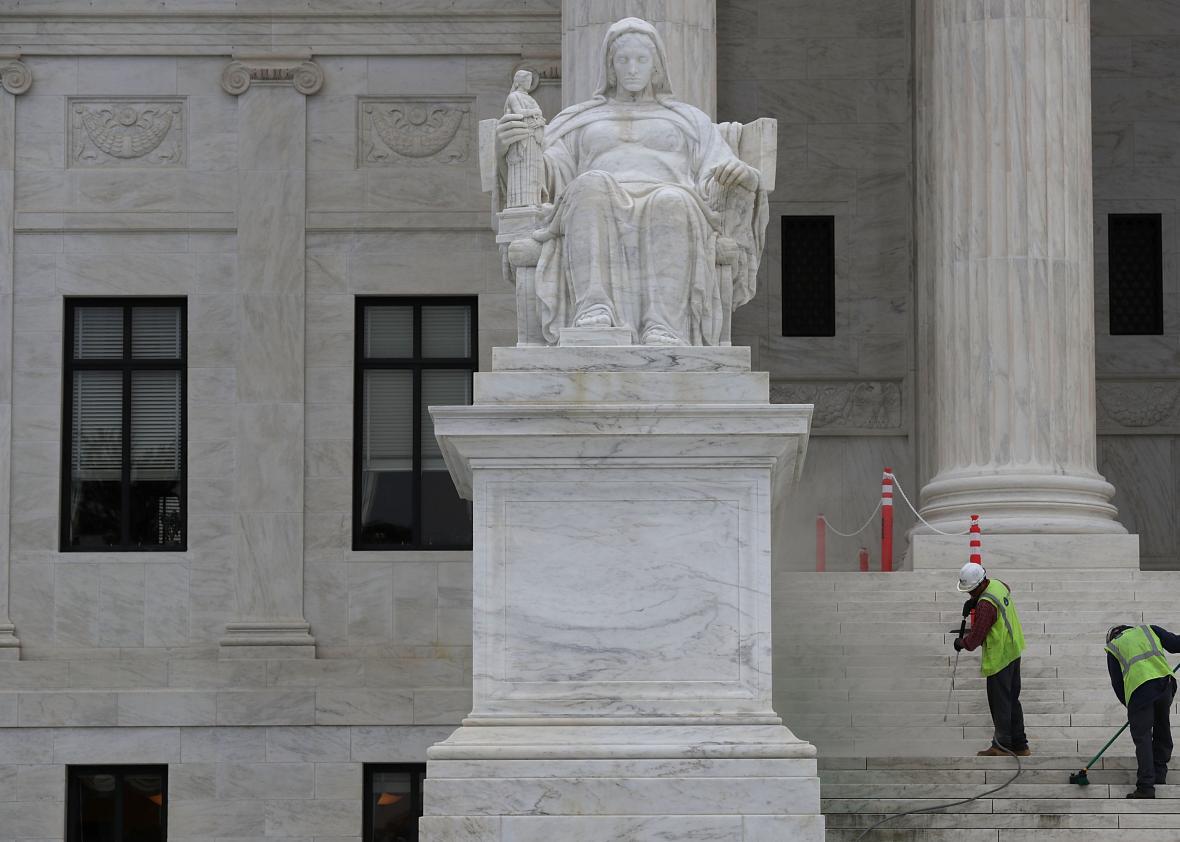In a 1987 decision called Booth v. Maryland, the Supreme Court ruled that “victim impact evidence” in capital cases—statements by family and friends of the victim read in court to the jury—generally violate the Eighth Amendment. Four years later, in Payne v. Tennessee, the court reversed part of that decision following a few personnel changes. The court held that victim impact evidence relating to “the emotional impact of the crimes on the victim’s family” was allowed. Less clear, however, was the fate of a rule in Booth that forbade the victim’s family members from expressing opinions about the crime, the defendant, and the appropriate punishment.
On Monday, the Supreme Court clarified that this rule still stands: Victim impact statements in capital cases, while permitted, are constitutionally barred from including opinions about the defendant and recommendations about his punishment. The Oklahoma Court of Criminal Appeals had decided that Payne implicitly overturned this ban and, in a capital case, permitted victims’ relatives to tell the jury that the defendant should be sentenced to death. (The jury agreed.) But “it is this Court’s prerogative alone to overrule one of its precedents,” the court declared in a per curiam decision on Monday—and Payne clearly did not overrule the ban on victim sentencing recommendations. Thus, the rule stands until the court says otherwise.
In a short concurrence, Justices Clarence Thomas and Samuel Alito agreed Payne didn’t “expressly overrule this aspect” of Booth—but suggested that the court should now overrule it. Both justices very clearly believe that Booth was wrongly decided in its entirety and that Payne “swept away its analytical foundations.” They will now, it appears, be on the lookout for a case that will let them argue that a victim’s family members should be allowed to recommend a punishment—including death—to the jury.
During the Booth/Payne era, victim impact statements were a liberal bête noire: They were seen to inject emotion into the sentencing proceeding, allowing the sentence to be swayed by passion instead of reason, thereby creating “cruel and unusual” inconsistencies in sentencing. But in recent years, these statements have become a favored tool in sexual assault cases for progressives who believe the courts are too lenient on sexual offenders. The constitutional problems with such statements seem, on the left, to have taken a back seat to the overwhelming (though understandable) urge for punishment.
